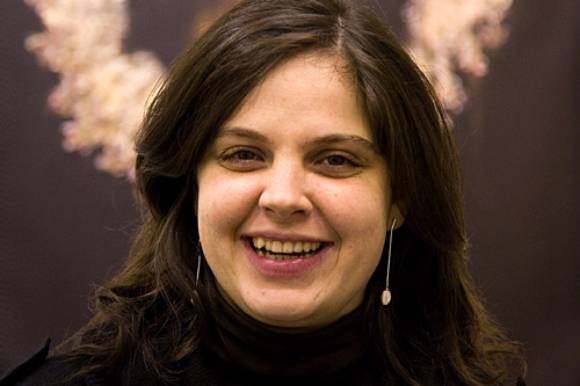 FNE: What is the state of the Hungarian production sector today, following two years of COVID-19?
FNE: What is the state of the Hungarian production sector today, following two years of COVID-19?
Viktoria Petrányi: Hungary is really busy right now in terms of production services, so I do believe that although COVID-19 has caused a lot of harm to production companies in many ways, the industry is getting back on its feet. In terms of local films, we are fighting a different battle, which is not COVID-19 related, and I think we need to be very smart and patient at the moment, since its very difficult for many projects to get funding. So, work has continued – there were projects which were paused, but then they resumed. All in all, after the first year of the pandemic, the sector became stronger. For projects which were financed by countries in Europe, there was a conscious decision to try and stay home with local companies working remotely, so some of our partners stopped production for a while. Despite this, the servicing industry was still in operation during the pandemic. Moreover, crews wanted to work, and people were really disciplined; we shot five projects during COVID-19 and all the crew members were extremely conscientious and disciplined so, as soon as vaccination was available, everyone got vaccinated. It was a real test for all the crews and they passed - they wanted to work so badly that it was all very smooth.
FNE: Has COVID-19 had any impact on film financing in Hungary, in actually bringing a production to completion?
Viktoria Petrányi: There was extra financial support provided by the authorities for international and local projects - which was a nice thing to have. This helped restart the industry quickly, and, indeed, it was meant to help those projects to come back as early as possible, and this financial support could be used for a variety of expenses, although it really also worked to help finance the funding gap which arose due to the increase in COVID compliance costs.
FNE: Has the pandemic influenced the types of films that are chosen to be made by Hungarian producers?
Viktoria Petrányi: The pandemic has not directly impacted this, but the growing number of international projects has pushed up prices, also due to the higher demand. So, while there were a lot of projects filming, they became more expensive - we need to control this, and be smarter about it. Local films are also being impacted by this, since there are no two sets of prices – Hungarian films have to incur the same expenses as international projects, and these are very high already.
FNE: Has the pandemic had an impact on the shoots of foreign films in Hungary? If so, how?
Viktoria Petrányi: In an indirect way, the work increased as a result of platforms – which rose in popularity during the pandemic and which, thus, needed more content. The availability of crews is a constant problem, however this was even the case without the pandemic. I’m not complaining about it, of course, since this means that the industry is growing. With regards to COVID-regulations on set, these were strict all the time, varying according to who the client was, and what kind of policy the client wanted us to follow. It was always a bit different. There were various protocols, but they were all rooted in the same principles: testing and hygiene. A whole COVID-compliance industry has blossomed in the wake of this pandemic.
FNE: Looking ahead, how do you see the Hungarian production sector evolving, as the pandemic continues to develop?
Viktoria Petrányi: Right now, there is constant growth and I think we just really need to be reasonable and smart to not foster an overgrowth; we need to fulfill all the demands of the market and to keep on giving a high level of service. We shouldn’t create a bubble, but we have to be aware that the production industry in Hungary has got quality and we need to maintain it even if there’s a high volume of work being shot here. Local projects are also somewhat dependent on the service industry, since high quality crews are then being used to help Hungarian productions. On the other hand, there are difficulties in maintaining stable prices, but in the face of these challenges, local productions have to be very focused on creating opportunities for European financing and coproduction, which is not easy these days. This is because current cultural policies are affecting our lives, on a daily level. So, although the production industry is strong, we need to create a healthy environment where we can be independent of politics and invest in the development of our own projects, and in our own talents, so that we do not abandon them and simply become a production service industry.



















